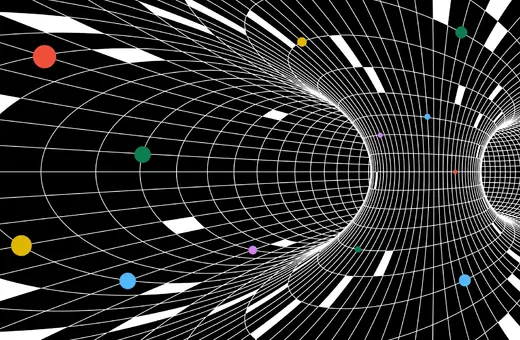The laws of logic are believed to be the basis of rational thought. But what grounds logic itself? Surely logic cannot be grounded in logic, for that would be circular reasoning, and therefore illogical. Yale Professor Jacob McNulty argues there is no logical foundation for logic. Instead we should look to Hegel for a solution to this dilemma, according to which logic is derived from metaphysics.
Consider logic, the area of philosophy traditionally tasked with identifying the most basic inviolable laws of rational thought: for example the law of noncontradiction; or modus ponens (“if p, then q” “p” therefore “q”). What justification could one give for logic? The question leads to a dilemma.
One horn of the dilemma is vicious circularity. Suppose the justification we give takes the form of an argument. But logic’s laws are presupposed by every rational argument. Hence, any argument we might give for them would be viciously circular.
___
One thing is clear: the law of noncontradiction is not self-evident.
___
The other horn is complacency. Having abandoned the way of rational argument we might pursue an alternative form of justification: the way of self-evidence or brute fact. This is essentially the method Aristotle tried. He suggested that we could simply dismiss anybody who questioned the law of noncontradiction. This second approach is by far the more common in the history of philosophy (and today). Yet this type of justification also leaves something to be desired.
Aristotle may not have known of serious challenges to the laws of logic, but we do. Paraconsistent logicians and dialetheists (believers in true contradiction) insist that the law of noncontradiction admits of exceptions: among them commonplace phenomena like motion and thresholds. They also employ nonclassical logics to resolve paradoxes. They further reject the idea of “explosion,” which warns that from a true contradiction anything follows.
___
The problem that has arisen here is sometimes called “the logocentric predicament,” the problem of how to justify logic without already relying on it.
___
Whether the paraconsistent logicians are right or not, one thing is clear: the law of noncontradiction is not self-evident. Not to them anyway. So much for this second approach.
The problem that has arisen here is sometimes called “the logocentric predicament,” the problem of how to justify logic without already relying on it. The logocentric predicament is important to early analytic philosophy, particularly to Frege and Wittgenstein.
SUGGESTED VIEWING On Language and Logic With Timothy Williamson, Saul Kripke, Romina Padro
In recent work I have explored the problem further with help from an unlikely source: Kant and his German idealist followers. None was a logician, in any technical sense. Still, the projects of all can be illuminated through the logocentric predicament.
This approach also clarifies one of the most vexing developments of the idealist period: the return of metaphysics. I mean that ambitious area of philosophy which strives to know God, the soul, the world. No sooner had metaphysics been declared moribund by Kant when it seemed to have revived by his idealist successors. This is especially true of Hegel with his project of Absolute knowledge and his talk of the world spirit. How could this stunning reversal in the fortunes of metaphysics occur? Some readers of Hegel sidestep this question by reading him as a less robustly metaphysical thinker, e.g. a pragmatist. I take a different tack.






















Join the conversation